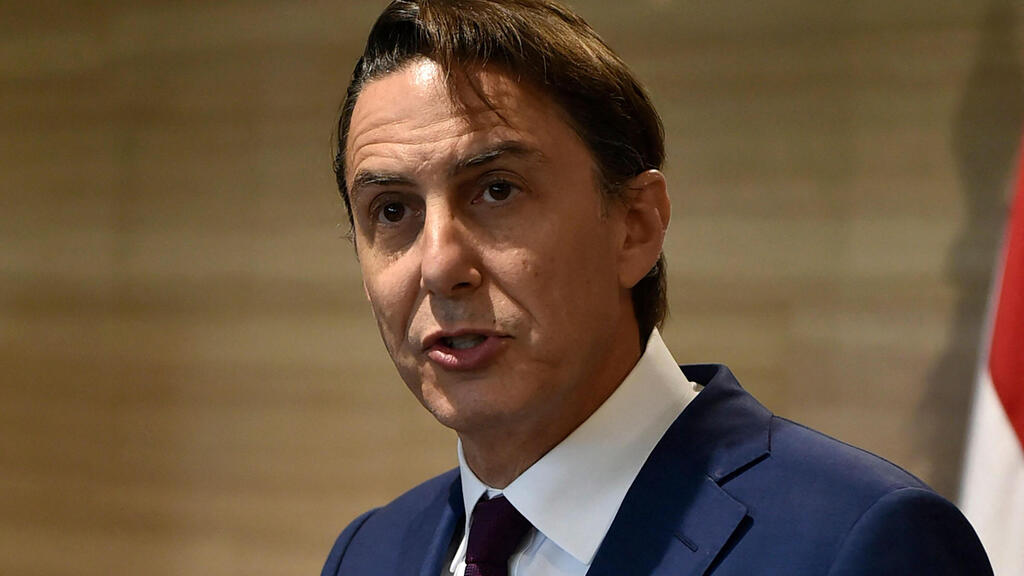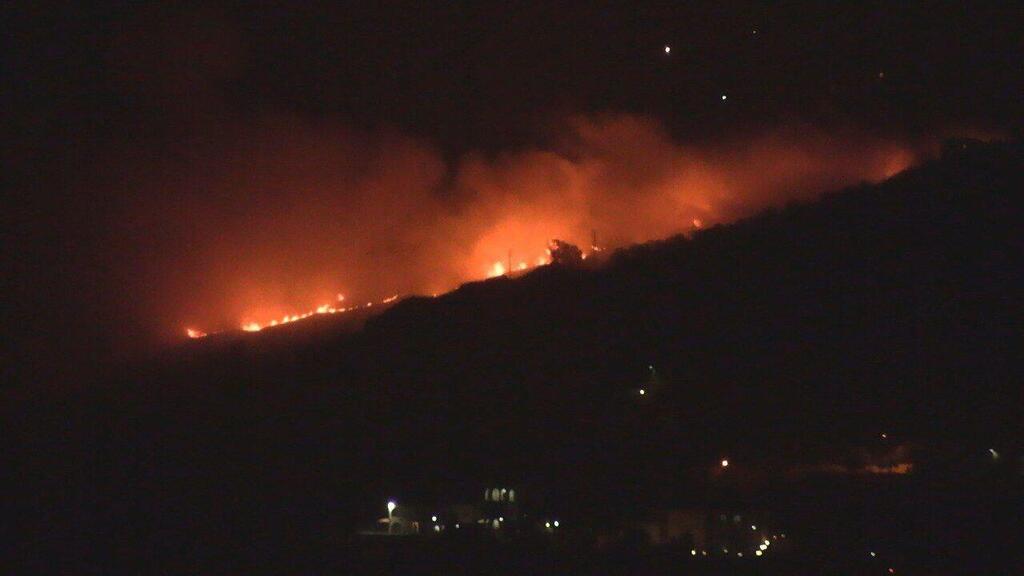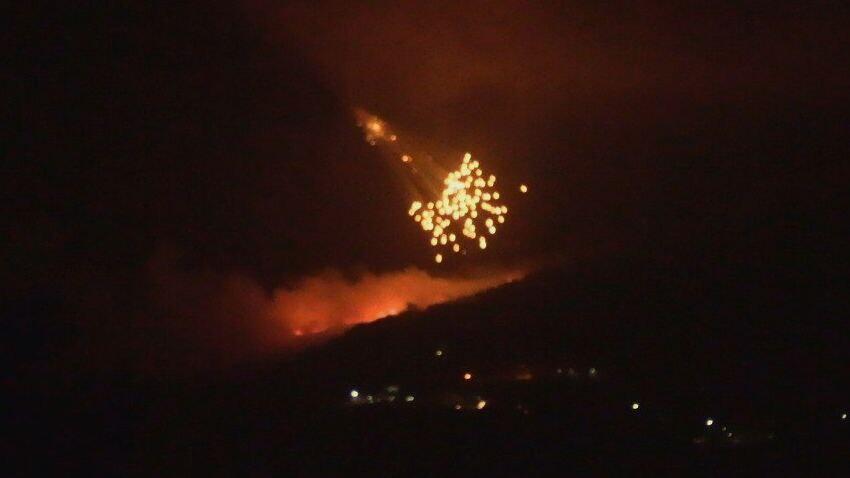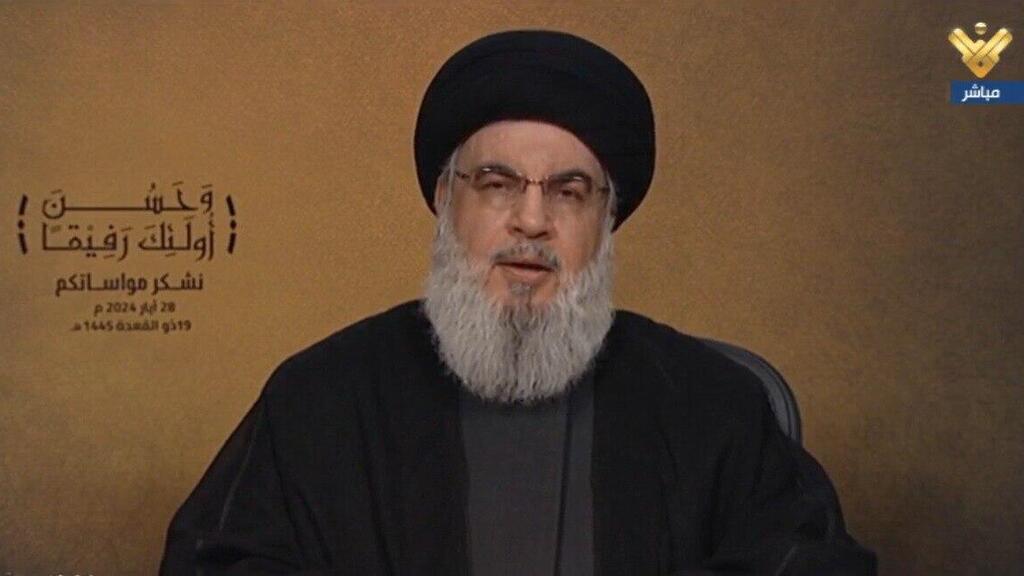Getting your Trinity Audio player ready...
Two people were injured on Sunday evening by an anti-tank missile fired from Lebanon that hit a vehicle the northern border town of Metula.
Hezbollah claimed responsibility for the attack. The IDF spokesman later reported that two rocket launches were identified crossing from Lebanese territory into the area of Metula.
Following the anti-tank rocket attack, Hezbollah's Al Manar network reported that there were strikes on several villages in the south of the country, including Kila, al-Khyam and Al-Azia.
The IDF reported that on Sunday evening IDF fighter jets struck a Hezbollah military structure and observation post in the area of Khiam and that earlier in the day, IDF fighter jets struck a Hezbollah military structure in the area of Ramyeh in southern Lebanon. In addition, IDF artillery fired toward the area of Aalma El Chaeb.
The IDF continues to attack Hezbollah targets in southern Lebanon
(Video: IDF Spokesperson's Unit)
Hezbollah on Wednesday claimed responsibility for launching a swarm of drones at Metula in retaliation for an Israeli strike north of Lebanon's Tyre the day before.
Also on Sunday, the top U.S. military officer warned on Sunday that an Israeli military offensive into Lebanon would risk an Iranian response in defense of the powerful Hezbollah terror group there, triggering a broader war that could put U.S. forces in the region in danger.
Air Force Gen. CQ Brown, chairman of the Joint Chiefs of Staff, said Iran "would be more inclined to support Hezbollah." He added that Tehran supports Hamas terrorists in Gaza, but would give greater backing to Hezbollah, "particularly if they felt that Hezbollah was being significantly threatened."
Brown spoke to reporters as he traveled to Botswana for a meeting of African defense ministers.
Israeli officials have threatened a military offensive in Lebanon if there is no negotiated end to push Hezbollah away from the border. Just days ago, Israel's military said it had "approved and validated" plans for an offensive in Lebanon, even as the U.S. works to prevent the months of cross-border attacks from spiraling into a full-blown war.
4 View gallery


U.S. President Joe Biden's senior adviser, Amos Hochstein, met with officials in Lebanon and Israel last week
(Photo: AFP)
U.S. President Joe Biden's senior adviser, Amos Hochstein, met with officials in Lebanon and Israel last week in an effort to deescalate tensions. Hochstein told reporters in Beirut on Tuesday that it was a "very serious situation" and that a diplomatic solution to prevent a larger war was urgent.
Brown also said the U.S. won't likely be able to help Israel defend itself against a broader Hezbollah war as well as it helped Israel fight off an Iranian barrage of missiles and drones in April. It is harder to fend off the shorter-range rockets that Hezbollah fires routinely across the border into Israel, he said.
Asked if the U.S. has changed its force posture in the region to better assure troops are protected, he said the safety of the force has been a priority all along and noted that no U.S. bases have been attacked since February.
Brown said the U.S. continues to talk with Israeli leaders and warn against widening the conflict. He said a key message is "to think about the second order of effect of any type of operation into Lebanon, and how that might play out and how it impacts not just the region, but how it impacts our forces in regions as well."
Hezbollah leader Hassan Nasrallah said in a speech Wednesday that leaders of terrorist groups and militias from Iran, Iraq, Syria, Yemen and other countries have previously offered to send tens of thousands of fighters to help Hezbollah, but he said the group already has more than 100,000 fighters.
First published: 00:54, 06.24.24








